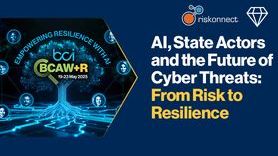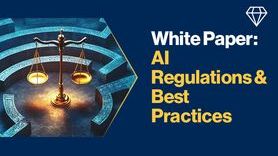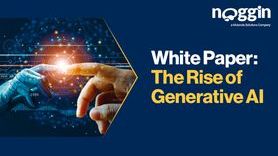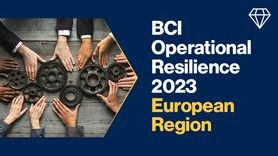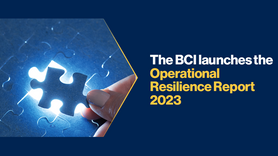Be at the forefront of resilient thinking with BS 65000

Be at the forefront of resilient thinking with BS 65000
The British Standards Institution (BSI) has recently published an important update to its British Standard on organizational resilience - BS 65000:2022 Organizational Resilience – Code of Practice. BS 65000 helps organizations understand what resilience means and provides the necessary guidance to help them build a more resilient future.
How quickly was your business able to adapt during the COVID-19 pandemic? Could it survive another unforeseen crisis?
Given today’s volatile business environment, it’s not surprising that resilience has become a strategic issue for forward-thinking businesses and organizations.
Organizational resilience is a planned approach that reaches beyond risk management towards a more holistic view of business health and success. A resilient organization is one that not merely survives over the long term, but also flourishes – passing the test of time.
However, whilst the concept of organizational resilience has proved popular, turning these ideas into actionable processes has proved challenging for many business leaders.
BS 65000: A code of practice for organizational resilience
BS 65000 provides businesses with support in achieving resilience throughout their organization. It was first published in 2014 but has now been revised and released as a code of practice, containing more recommendations and guidance than before.
It’s guidance and recommendations - developed by a committee of industry experts - establishes what is meant by organizational resilience. This includes its defining attributes and the practical measures that can be taken by a business to achieve it.
Having clear expert consensus on what organizational resilience is has helped to pave the way for actionable steps to be taken by businesses wanting to achieve this goal.
BS 65000 does this by:
- Providing an authoritative document that can be used as part of a board-level agenda
- Providing clear interconnection and recognizable relationships between key business areas such as cybersecurity, sustainability, and supply chain to support responsible and good business practices
- Harmonizing many existing management processes and systems, such as risk management, business continuity management, and crisis management to save management time and to improve investment decisions
- Supporting discussions on resilience across organizations with agreed terms and definitions
- Providing a means to effectively measure resilience
The changes to this standard also draw on recent and relevant academic evidence, business insights, and new thinking to update the terminology and approach. Its update recognizes the areas of good practice that have evolved since it was first published in 2014.
Finding the value in organizational resilience
With the state of the global economy uncertain and the effects of climate change being felt across nations, it has never been a more crucial time for business leaders to invest in their organizational resilience.
Adopting BS 65000 can help businesses to:
- Establish processes to ensure organizational resilience
- Enter new markets
- Accelerate innovation
- Grow sustainably
- Improve efficiency
- Strengthen their risk management
Developing an effective organizational strategy now, means businesses will reap the benefits in the future.
BS 65000:2022 is currently available to purchase on BSI Knowledge. Shop here.





